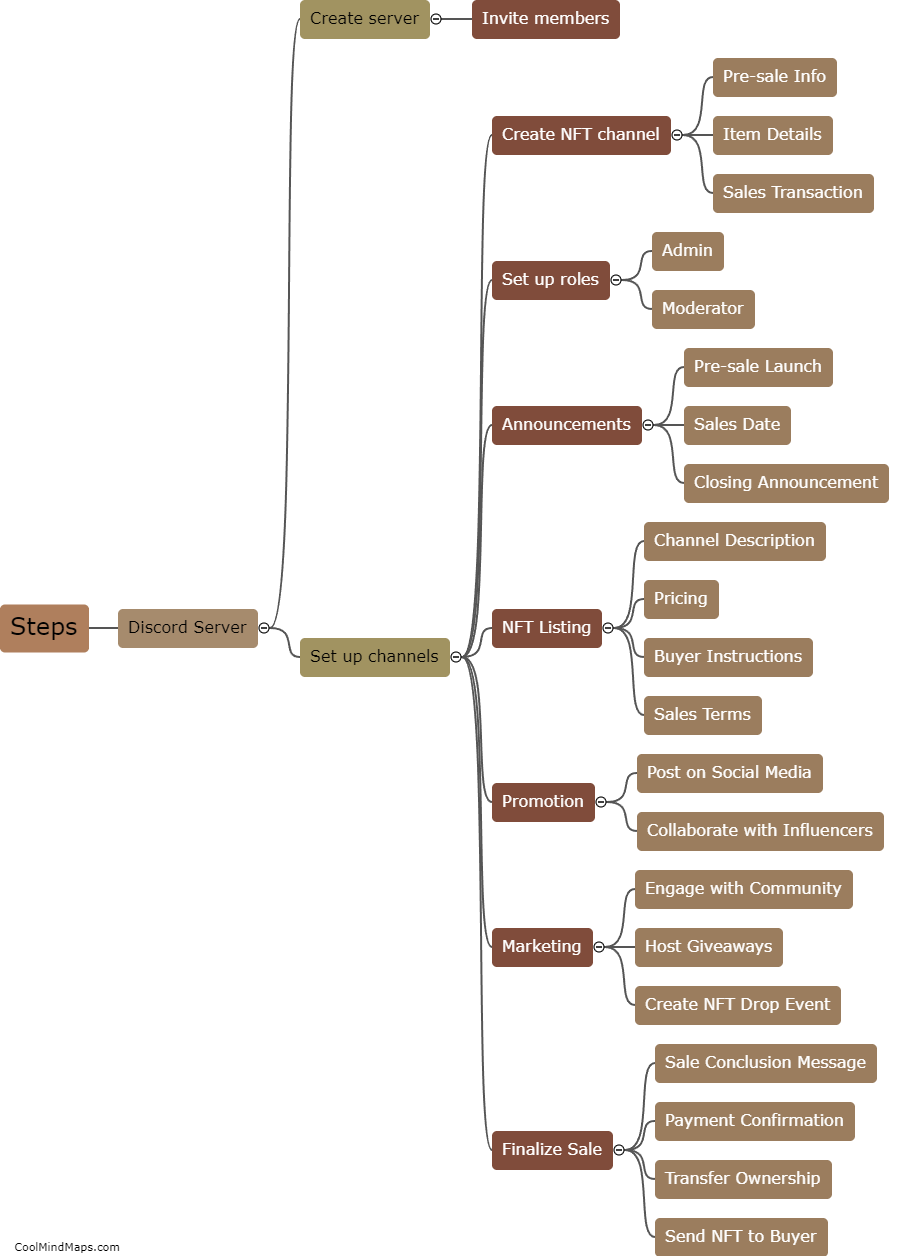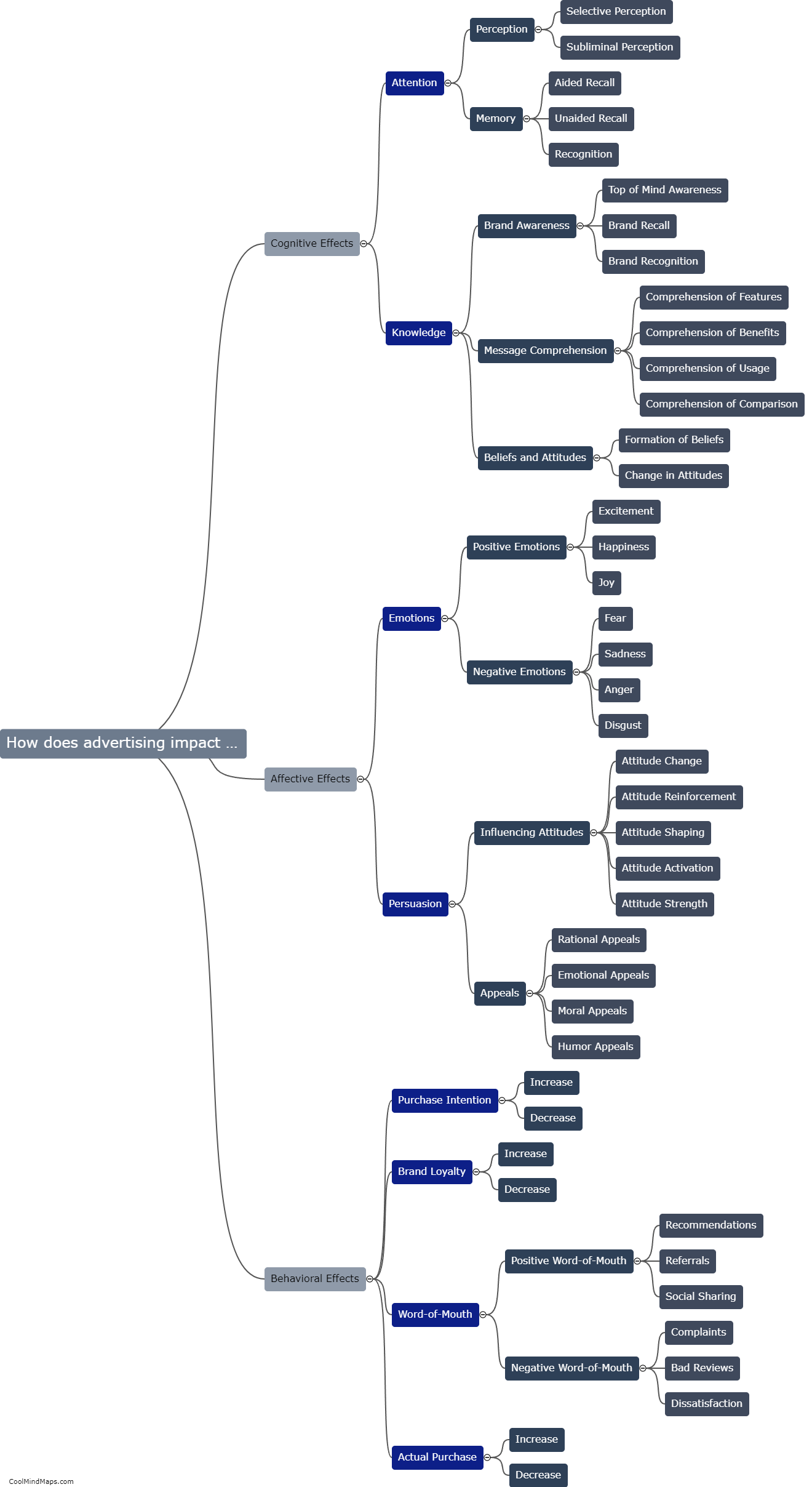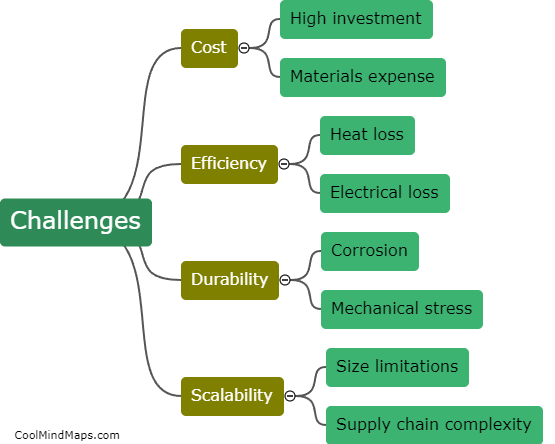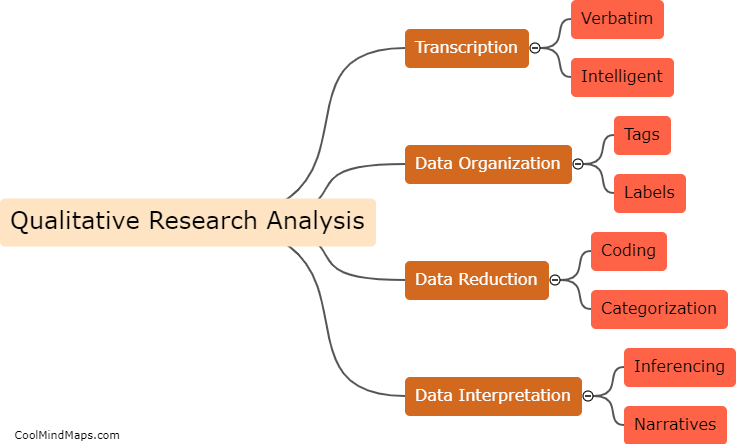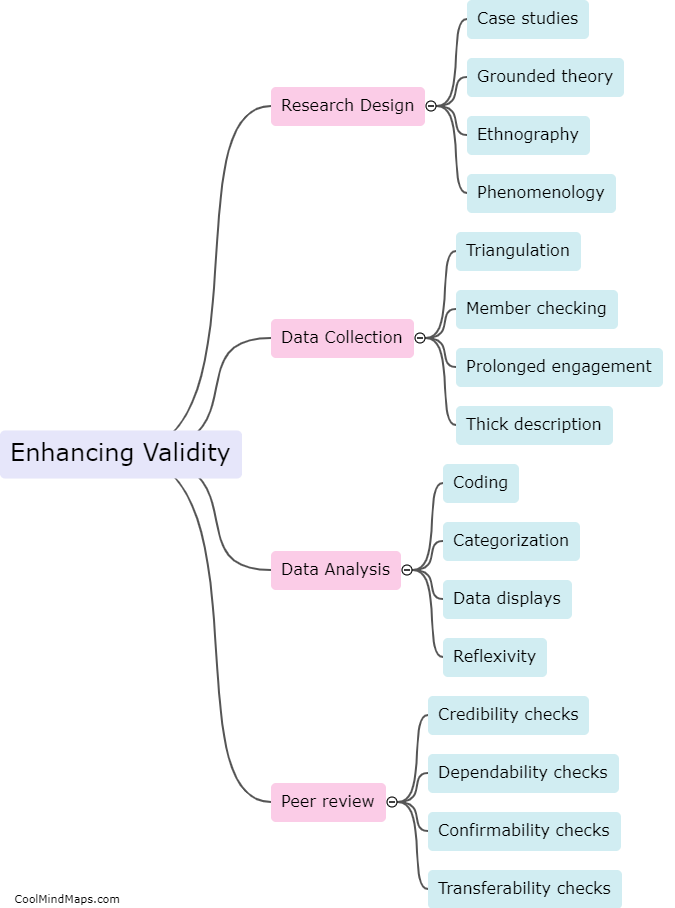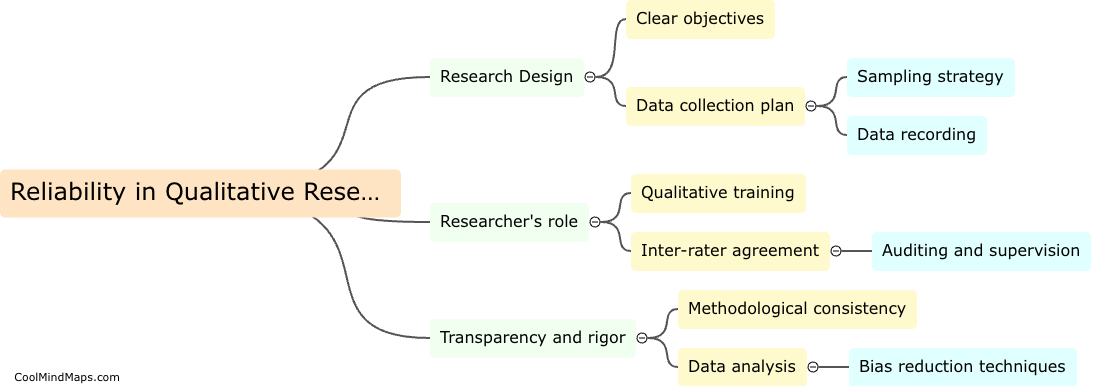What is reliability in qualitative research?
Reliability in qualitative research refers to the consistency and dependability of the research findings. It is the extent to which the research methods and techniques are applied consistently to yield the same results over time. The reliability of qualitative research involves ensuring that the data collection and analysis methods are consistent, that the sample size is appropriate, and that the researcher avoids bias in data collection and interpretation. Reliability among qualitative researchers depends on various factors like transparency in data collection and proper documentation of research methods. It is necessary to establish reliability in qualitative research to ensure that the findings are valid and can be used to make conclusive inferences about the research objectives.

This mind map was published on 20 April 2023 and has been viewed 119 times.

